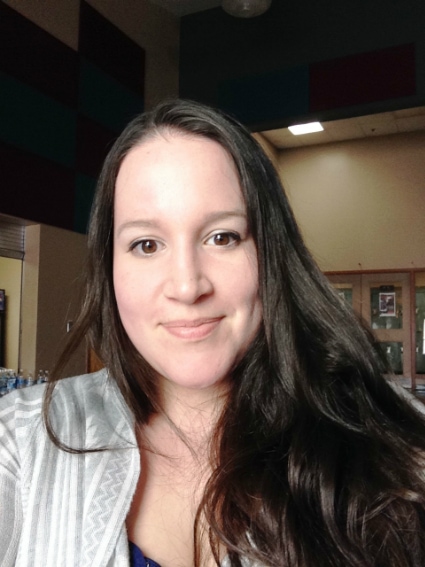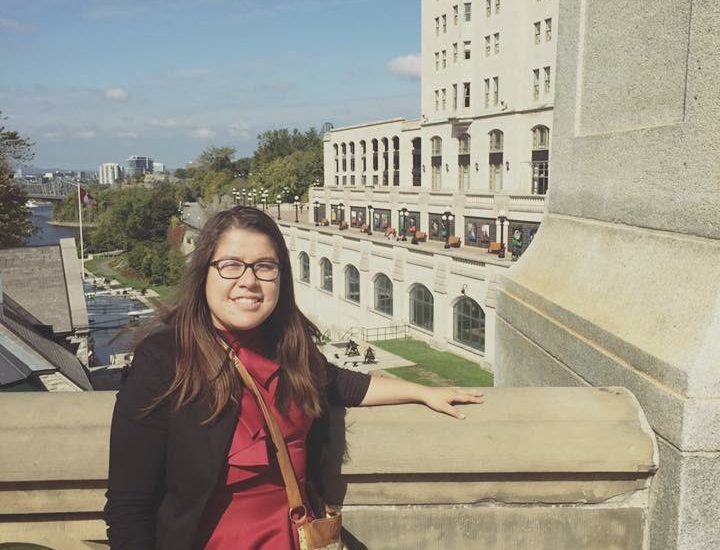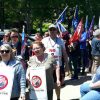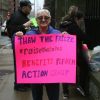KJIPUKTUK (Halifax) – February 2014 was a very dark time in Halifax, as many people were affected by the murder of my sister, Loretta Saunders. She was a 26 year old Inuk university student. At St. Mary’s University, she was writing her honour’s thesis on missing and murdered Indigenous women and girls in Canada.
Despite the pain and struggles that came hand in hand with that experience and the grief that followed, many were dedicated to making sure this would never again happen to another Indigenous woman or girl.
My goal is to reach for the sky and hope that the generation after me sees my life as a stepping stone. Then they’ll reach further for the stars. Shurenda Michael.
On top of creating a massive push for the National Inquiry into Missing and Murdered Indigenous Women and Girls, Loretta’s legacy includes four scholarships: The Loretta Saunders Community Scholarship Fund, New Brunswick Community College’s Loretta Saunders Memorial Scholarship, Nunatsiavut Government’s Loretta Saunders Memorial Scholarship, and Saint Mary’s University’s Loretta Saunders Memorial Scholarship.
The scholarships’ payments vary, anywhere from $1000 to $5000. The Loretta Saunders Community Scholarship Fund also works to provide applicants who weren’t chosen with grocery and gas gift cards, computers and other supports.
This year, we chose two outstanding applicants, Julie Francis and Shurenda Michael. We spoke with both of them about the obstacles they face and how the scholarships make a big difference.
Julie Francis: It was really emotional for me
The first awardee is Julie Francis is a community health nurse with the Eskasoni Health Centre on her home reserve, Eskasoni First Nations. She is passionate about improving the health and well-being of her community. She is now pursuing a Masters of Science in Nursing at St. Francis Xavier.

Still speechless about receiving the award, Julie Francis shares the experience of hearing she was selected for the LSCSF, her struggles as an Indigenous woman in university and about her plans for the future.
How do you feel as a recipient of the Loretta Saunders Community Scholarship Fund?
When I received the phone call notifying me that I was chosen, I was pretty emotional and struggled to hold back my tears. I was honored, happy, grateful and more. I know your sister (Loretta) used her education as a means to improve the lives of indigenous people, and I hope to do the same. It was really emotional for me.
How did you hear about the scholarship fund?
I had seen it mentioned on social media, and found a link on Facebook. I also had messaged some people asking if they had information about the scholarship.
What are some of obstacles that you face as an Indigenous woman pursuing higher education?
[…] During my undergrad, I faced many obstacles as an indigenous woman, I was away from home living in Antigonish. I had experienced culture shock and didn’t realize it until sometime after, and I was the only Indigenous person in all of my classes. Sometimes I felt like I was singled out in class- not in a bad way but I was the one they would always look to when Aboriginal topics came up, and I didn’t like speaking in class like that. I was really lucky to have my boyfriend (now husband) by my side through it all, he was great support.
This time, during my graduate studies, things are different. I’m doing the program by distance so I get to stay home, and stay with my family. I feel like I am contributing to other people’s education and awareness of Aboriginal health and the population because I’m not afraid to speak up and contribute meaningful knowledge and experience in class discussions.
The obstacles I face are related to finances, raising a family and working full time while going to school. I wouldn’t have it any other way and everything is working out, not easy but worth it.
What message do you have to send to future applicants and to young Indigenous women who are considering post-secondary education?
There are so many education and training programs available out there, you just have to find them. Ask questions, make phone calls, use the internet. Find something that sparks your interest because enjoying what you do every day really makes a difference.
What’s next for you? What are some of your goals?
I’m looking forward to some of the work I’ll be doing with my thesis, that’s my next goal. I don’t want to say too much because I haven’t started yet. Once I graduate with a MscN I will continue to work in my community.
Shurenda Michael: My goal is to reach for the sky
The second awardee this year is Shurenda Michael. Shurenda is studying for a Bachelor of Arts, majoring in Sociology. A member of the Sipekne’katik Band in Mi’kmaki, she has lived on the rez most of her life. She has been a key person with the Leave Out Violence (LOVE) program; a national peer based initiative that aims to help youth overcome various forms of violence and ultimately, help their communities.

A professor of Shurenda’s at St. Mary’s University encouraged her to apply for the Loretta Saunders Community Scholarship Fund. Hard earned and well deserved, Shurenda was awarded the 2017 Loretta Saunders Community Scholarship.
She champions a healthy attitude and shares the importance of leading with this mindset to create positive change for Indigenous youth.
Despite setbacks during her first semester, Shurenda went on to the United Nations Permanent Forum on Indigenous Issues to share the LOVE program with the UN in New York City.
Shurenda was more than happy to share her excitement as an awardee and words of encouragement for youth who dream of pursuing higher education:
How do you feel as a recipient of the Loretta Saunders Community Scholarship Fund?
I am very grateful to be able to be a recipient of the Loretta Saunders Community Scholarship Fund; I truly appreciate being able to share part of my story with people in the process.
What are some of obstacles that you face as an Indigenous woman pursuing higher education?
Trying to balance your home life and school life like everyone else but also carrying the stereotypes in a negative way that come with being Indigenous and fighting against to prove yourself in a positive light to yourself, your community, and others especially strangers who automatically label you.
What message do you have to send to future applicants and to young Indigenous women who are considering post-secondary education?
Study what makes you happy, don’t carry the burden of needing to do it for someone else, you can succeed in whatever you would like to do. There will always be obstacles no matter what situation but also be humble and take pride in that you are Indigenous, ask for help when needed. Always apply yourself to the fullest but never sell yourself short.
What’s next for you? What are some of your goals?
Just trying to finish my degree. My goal is to help support my family. And, be there for everyone [of] my friends and family in support of mental health and education.
If you’re interested or know someone who may qualify for the Loretta Saunders Community Scholarship Fund, share this link. If you would like to donate to the Fund to help build a brighter future for Indigenous women and girls in Atlantic Canada, click here.




Thank you, Delilah. I enjoyed reading about Shurenda and Julie. sending good wishes to them and you.